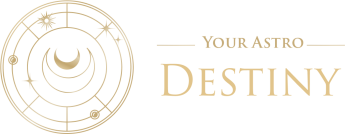The Interplay of Archetypal Astrology and Free Will
In the fascinating and intricate world of astrology, a subject that sparks much debate is the concept of archetypal astrology and its relationship with free will. Archetypal astrology—an analytical approach that uses archetypes to interpret astrological phenomena—has been the focus of many discussions regarding the idea of predestination versus free will.
Central to archetypal astrology, established by Carl Gustav Jung, is the embodiment of archetypes. These are fundamental human motifs or patterns that shape our beliefs, behaviors, and understanding of the world. They are the prism through which we perceive our reality, each representing a distinctive aspect of the human psyche. Arising from the collective unconscious, archetypes are universal symbols or patterns recurrent in various cultures and times. They profoundly impact our decisions, actions, and reactions in life, manifesting in multiple forms – gods, symbols, human characters, or astrological planets.
The practice of archetypal astrology considers the planetary movements as the reflection of the unfolding archetypal patterns influencing human experiences. To exemplify, when a particular planet such as Mars is ascendant or prominent in one’s birth chart, the archetype it signifies—usually associated with aggression, courage, assertiveness—becomes predominantly active within that person’s psychological framework.
However, does the dominance of an archetype, as dictated by the positions and movements of celestial bodies, determine our actions completely? Is there room for free will? Herein lies the contentious debate.
Many argue that these celestial influences do not act as puppeteers controlling our actions. Instead, they offer a symbolic language or cosmic map that signals potential possibilities and dynamics at play. The planetary positions and their corresponding archetypes present a range of expressions, from their most constructive to the shadow or dark aspects. The choice of how these are expressed and embodied falls within the realm of an individual’s free will.
This stance aligns well with Jung’s perspective, suggesting that while archetypes invariably shape our perceptions and influence our responses, how we engage with them remains within our scope of personal choice and free will. Although we are born into specific environments, circumstances, and astrological influences that shape our archetypal inclinations, the choice to be proactive, reactive, or inactive still lies with us.
Analogously, understanding our astrological chart is like being handed a script for a play. The archetypes—the characters we are to perform—are described in depth. The scenarios that convey the drama are outlined. However, we still retain the sovereign right to interpret and perform our character, to speak or not to speak the lines, and to navigate through the imposed scenario using our unique insights and decisions.
In essence, archetypal astrology does not negate free will but accentuates its importance. Astrology, in this view, is a partnership between fate—the circumstances we are born into—and free will—how we choose to respond to those circumstances. Our birth chart gives us a roadmap, but it is our free will that decides the landmarks we want to visit and the detours we wish to take.
By balancing our astrological understanding with the exercising of free will, we can explore the full extent of our potential. Like navigators utilizing a star chart, we can use the constellations of archetypes within us not to predetermine our journey but to guide, enlighten, and enrich the voyage of our lives.
In conclusion, while archetypal astrology helps us understand the universal patterns and potentialities our lives revolve around, it underscores the necessity of free will, reminding us that we are not merely pawns under cosmic control but active participants in weaving the unique tapestry of our existence.














